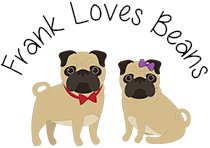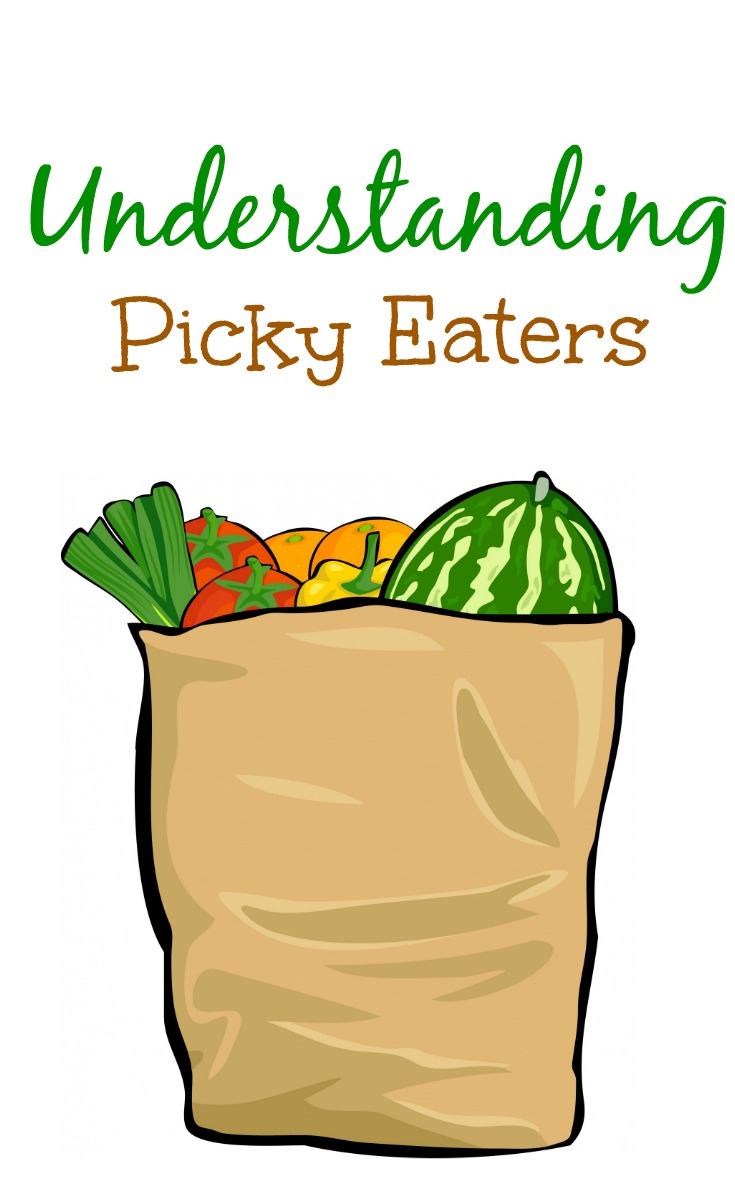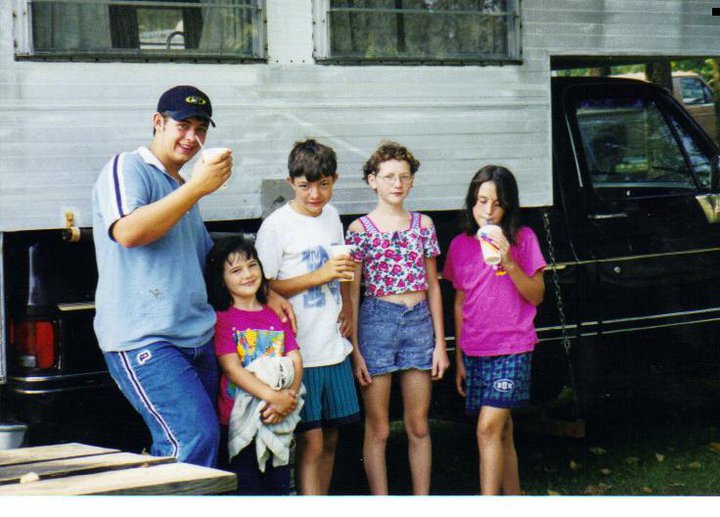
Understanding Picky Eaters
There is an affiliate link in this post.
I am not a parent. I have no practice in caring for picky eaters. This post isn’t advice for how to get your picky eater to stop being a picky eater. Instead, this post is simply to share the thoughts and feelings that I had as a child, when I was a very picky eater. I know that many people view picky eaters as naughty, disobedient or obstinate. I think it’s fair to say that my parents were both a little irritated or annoyed by my picky eating, but neither of them viewed it as a behavioral issue which I am really thankful for because I was not trying to cause a problem. Of course, all kids are different and your picky eater might have a different experience than mine but here is my personal insight into my picky eating habits as a child.
I was a shy, sensitive child. I liked watching the same movies or tv episodes repeatedly. I had a blanket that I slept with every single night, well into my adolescents. While I was shy, I wasn’t anti-social. I had friends and close cousins who I loved spending time with – until night time came, anyway. I wanted to be at home in my own bed every night. When my family would go camping I would really struggle with falling asleep because I was so anxious about not being in my own bed even though my family was in the tent with me. I was open to trying new things that seemed fun, exciting and low-risk to me. However, if something was new and posed even a little risk – meaning I could get hurt, feel stupid or embarrassed I wouldn’t try it even if I thought it might be fun. For example, I remember wanting to go tubing with my cousins on the lake. It looked so fun! I couldn’t convince myself to try it though, out of fear that I would fall off really early and be embarrassed. I didn’t gain the confidence to try getting rid of my training wheels until I was so old that I was embarrassed to be using training wheels. I didn’t learn how to swim until after I got so old that I was embarrassed using a life jacket in the pool.
In my line of thinking, my picky eating was really just an extension of those habits, but the emotions were a bit more intense. I found security in comfort in eating the same foods, prepared the same way, with regularity. With new foods, there was a possibility that it would taste bad and that scared me. It was clear to me even as a young child that what I ate caused high emotions in many adults, as well. It was always a little anxiety-inducing to be left with a baby sitter, or to visit a friend’s house for more than a few hours because I knew I would need to eat while there. I knew that if i said I didn’t like a certain food that they might try to force me to try it, or might get angry at me for being openly disobedient or disrespectful. So instead of admitting that I didn’t like a certain food, I would usually just say “No thank you, I’m not hungry.” even if I was having hunger pains. I could tell that some of these adults could see through my act, but many still would seem to think I was being rude or naughty. I remember being told things like “If you were my child you WOULD eat this.” or “You’re lucky you aren’t mine – you wouldn’t be picky if you lived here!”. My mom has always said that I was her ‘easy’ child. I had a natural desire to avoid conflict, and was a people-pleaser. I could avoid fighting with my siblings or go to bed when asked without a problem. Yet, my strong aversion to many foods made it impossible for me to “just eat” what others wanted me to eat. In a few instances I was forced (not physically forced, just emotionally pressured into feeling like I had no choice) to eat something I didn’t want to eat and gagging as a result. I don’t just mean a ‘light’ gag – I mean the deep, forceful kind – I could feel my stomach muscles contracting as if I were about to vomit. Thankfully, the adult who was pressuring me backed down in both cases but it was a really awful experience both times. In both cases, I felt like the adult thought I had ‘faked’ the gag just to get out of swallowing the food or to “win”. It was not a dramatic show that I put on, though. I was desperately hoping to just quickly swallow the item to get it over with so the “conflict” would go away and end. I just wanted to go back to feeling comfortable and for the tension to go away, but I physically wasn’t capable of just eating the food.
A photo of me (the littlest one) with my siblings on a camping trip. I’m holding my security blanket while they enjoy shakes (one of the many foods I don’t care for).
Something I hear from parents of picky eaters often is “S/he ate this yesterday and today S/he says it’s gross!”. Sometimes this is used to “prove” that picky eating is a power and control game that kids put on. Maybe for some kids that is the case, I don’t know. However, I remember having a strong sensitivity to the way things were cooked. For example, when we had hot dogs mom would boil them. One day at my aunt’s house she asked if I wanted a hot dog and I said yes – thankful that I was offered a food that I liked while not at home. She microwaved the hot dog, and cooked it for so long that the ends busted open a bit, and were red/dry looking. In an attempt to just avoid feeling awkward or tense, I tried eating the hot dog but the ends felt stiff due to being overcooked. I was used to very soft hot dogs that had been boiled. I can’t explain why, but that texture difference was intolerable to me. I had similar experiences with mashed potatoes and ramen noodles – I was used to them being cooked to a certain softness, and in a few cases when I was served them cooked more or less than I was used to I couldn’t bring myself to eat them due to the texture difference. I also remember being sensitive to food touching. For example, if watery ketchup, or some water from some canned veggies ran across my plate and got into my mashed potatoes, I wouldn’t be able to bring myself to eat the part of the mashed potatoes with the “corn juice” or ketchup-water on it. When I was a child we owned a single divided plate that was used for my dinner almost every single night which helped with the food-touching issue. At the time children’s divided plates were rare but they can be purchased very cheap now. Amazon has 3-pack set for $9.99.
In my late teens I saw a therapist for some depression issues. I didn’t really realize until later that I had anxiety as well, but discussing some problematic and painful events from my past helped alleviate my depression and anxiety over the course of a few years worth of talk therapy. In those 2 years, I began eating SO many common foods that I did not like as a child including pizza, cheese, tacos, onions, onion rings, peppers, yogurt, rice, and oatmeal. I am now 25, but there are still many common foods that I don’t like the taste of including mac & cheese, ice cream, milk and chocolate. There are also still foods that I can’t tolerate the texture of including lasagna, large shell pasta and cottage cheese. I don’t feel like my anxiety is holding me back or causing these food preferences though. I’m able to try new foods and give them an honest try, which I couldn’t do prior to my late teens. For me, I believe my picky eating was a symptom of my anxiety struggles. I don’t think I had an anxiety disorder as a child, but I was just naturally prone to feeling anxious easily because of my personality. I’ve noticed as an adult that the children in my life who are picky eaters also tend to be prone to be on the nervous side. For me, being “confronted” about my eating in a challenging or really assertive way just made me MORE anxious about eating and food. It also made me more anxious in general. I had a childhood friend whose step-mom was very vocal about disliking my picky eating so I didn’t visit their house very often for fear that she would nag me about eating or try to guilt, shame or force me into eating something like she had done in the past.
Were you a picky eater, or do you have a child who is? Do you think picky eating is sometimes a symptom of anxiety? I’d love to hear about your experience in the comments.



Leave a Comment